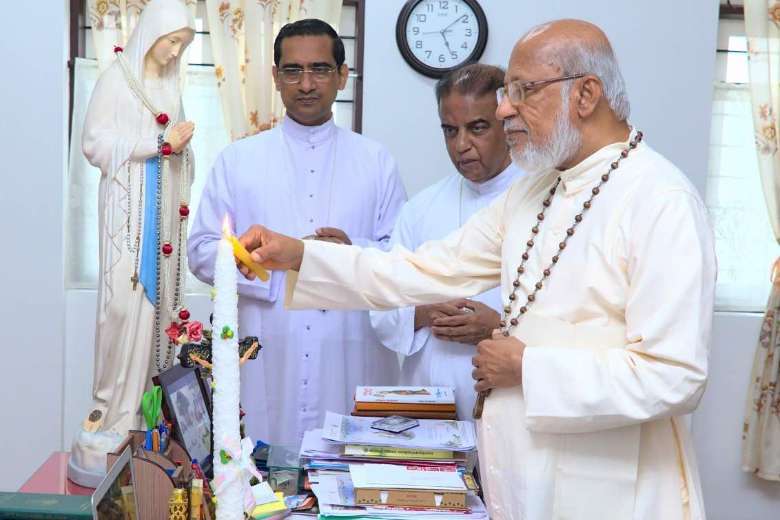Indian Church seeks to end smears over nun’s murder case
Syro-Malabar bishops are appalled by claims they created roadblocks with their political and economic clout

The Eastern-rite Syro-Malabar Church has called for an end to anti-Church campaigns that have increased since a priest and a nun were convicted in a 29-year-old murder case involving a junior nun.
Its bishops’ synod said in a statement that the campaigns even hid the fact that a federal investigation started following church officials’ request to end the mystery over the death of Sister Abhaya in 1992.
“The 63 serving and retired bishops attending the virtual synod also expressed their anguish and disappointment over such campaigns against the Church,” Father Alex Onampally, secretary of the Church’s media commission, told UCA News on Jan. 16.
The bishops’ statement comes after social media discussions and media reports lauded the conviction as a triumph of justice and accused the Kerala-based Syro-Malabar Church of trying to hush up the case with its economic and political clout.
A special court of the federal Central Bureau of Investigation (CBI) on Dec. 23 sentenced 71-year-old Father Thomas Kottoor of Kottayam Archdiocese and 57-year-old Sister Sephy to life in prison for murdering 19-year-old Sister Abhaya and dumping her body in a convent well on March 27, 1992.
Critics have blamed the Church for creating roadblocks by destroying evidence and supporting the convicts. It credited an action council involving civil society members with ensuring justice.
The bishops’ statement said these campaigns deliberately hid the facts about the Church’s work to ensure justice for Sister Abhaya and her family by seeking a federal investigation into the case and cooperating with it.
The federal investigation began in 1993, a year after several investigations by Kerala police failed to solve the case and initially dismissed it as a case of suicide. Church officials were among those who campaigned for a further probe, saying the young nun had no reason to commit suicide.
“Unfortunately, some vested interests were attacking the Church and hiding the real facts to tarnish its image,” the bishops said.
It said the Church accepted the court verdict in the case as “a law-abiding community.” However, the bishops also said that experts’ opinions that question the logic of the verdict should also be taken into account.
The judgment document, now in the public domain, shows that the conviction was based only on circumstantial evidence with no eyewitnesses. The convicts also continue to plead innocence.
The bishops said they only wish that “no innocent shall be convicted and the real culprit allowed to escape” based on vested interest campaigns.
“We also hope that the appellate courts will further shed light on it and clear the doubts in the verdict” that convicted the priest and the nun.
The convicted pair can challenge the CBI special court’s order in Kerala High Court, the top court in the southern state, and if not satisfied with its order, they can move the Supreme Court of India, the top court in the country.



